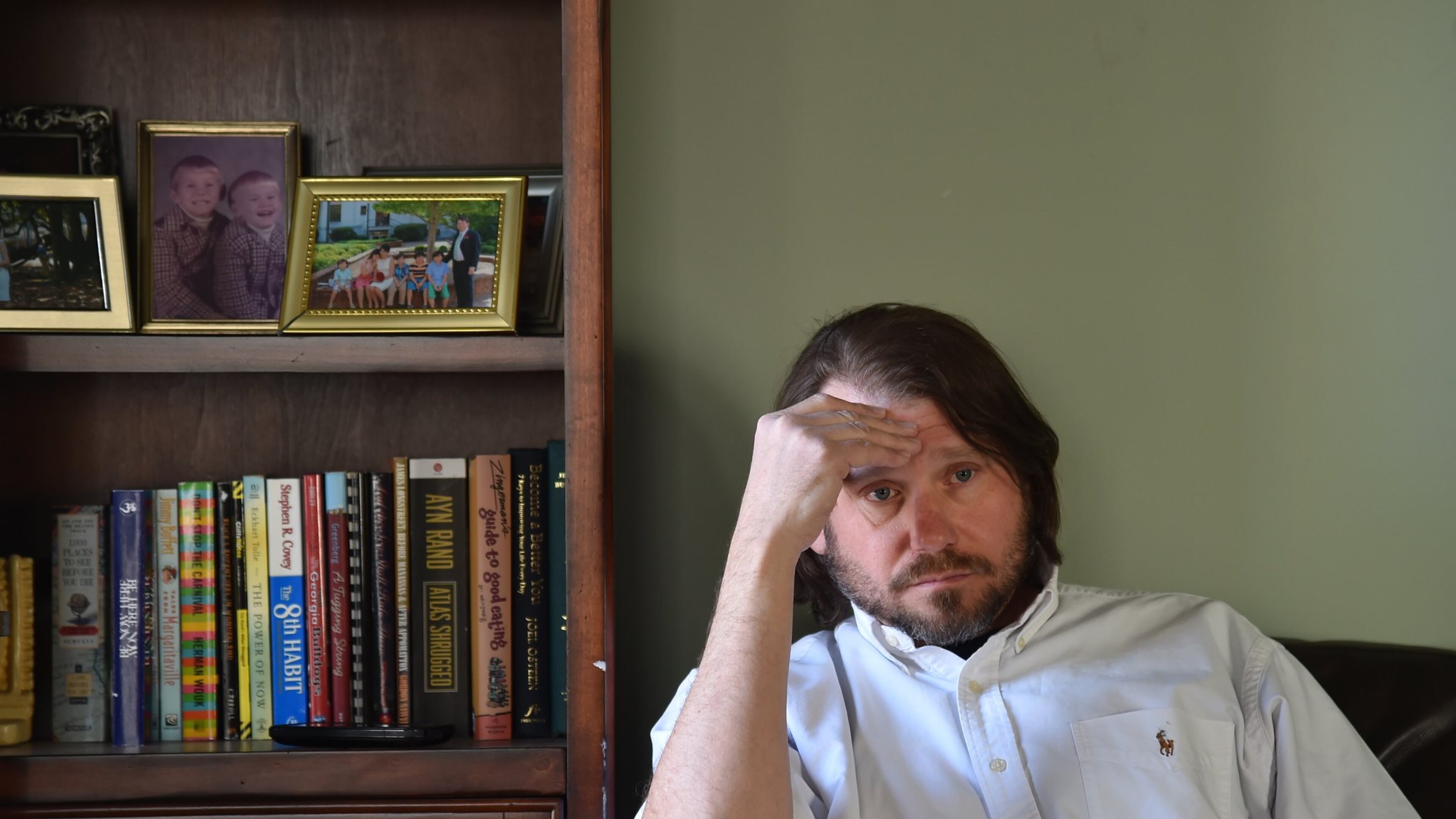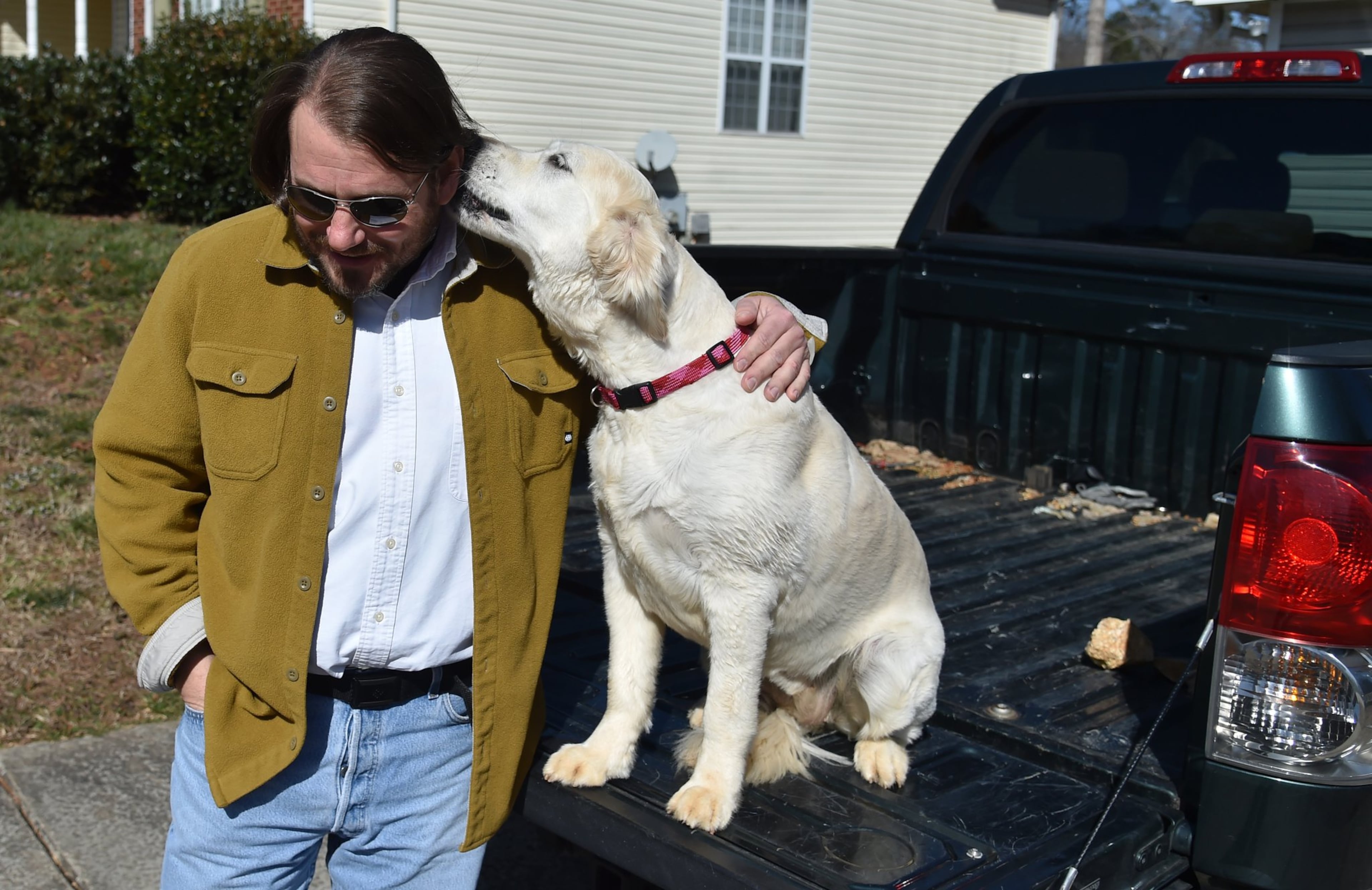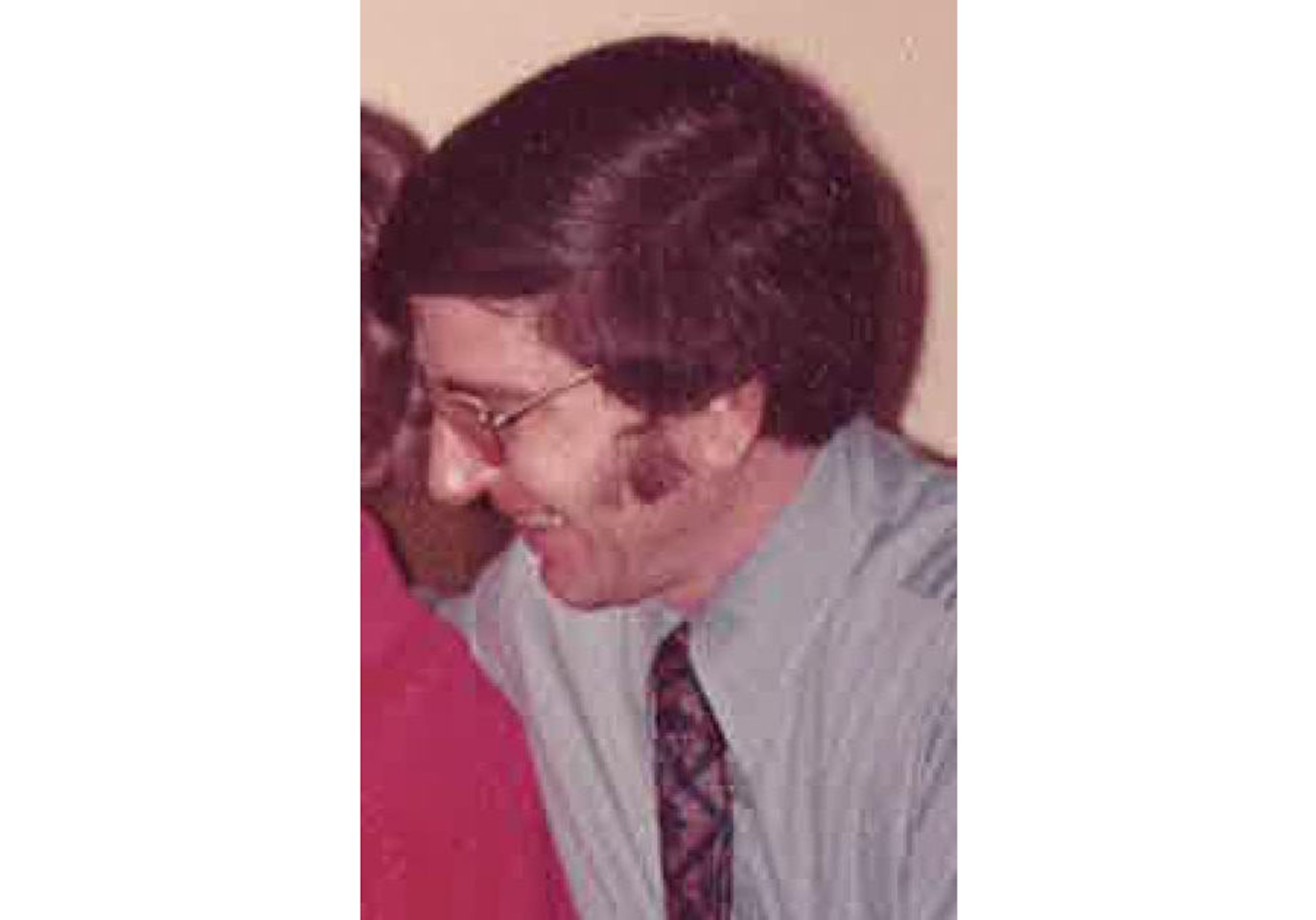In Boy Scout sex abuse case, small-town secrets revealed

Seeking help
If you — or someone you know — has been the victim of childhood sexual abuse, there are ways to seek help or even, for a limited time, pursue civil legal action.
Here are some resources:
323-552-6150
Wilbanks Child Endangerment and Sexual Exploitation Clinic at the University of Georgia Law School:
706-369-5720
Ph: 678-578-4888
Editor's note: Fleming Weaver was removed as a deacon of First Baptist Church of Gainesville and the church issued an apology to abused scouts.
Original story: The Boy Scouts call it "The Ordeal."
A weekend spent outdoors testing survival skills, The Ordeal is a rite of passage for the Order of The Arrow, a national honor society for Scouts.
Robb Lawson, working his way up to the rank of Eagle, was looking forward to sleeping under the stars and cooking over an open flame at Rainey Mountain’s Mowogo Lodge.
The food made him sick. A scout leader tried to help, but Lawson’s discomfort lingered. That same scout leader — whom Lawson would later identify as Fleming Weaver — ushered him into his tent, Lawson recalled.
“He was sitting on the metal bed. Had me stand and turn and drop my pants,” Lawson, who turns 46 on Sunday, told The Atlanta Journal-Constitution. “He raped me.”
“He’s still got the hat on. It’s got the Boy Scout emblem on the front,” Lawson said. “He had all the ribbons and medals and badges and stuff. It was like his mask.”
Haunted by that memory for more than 30 years, Lawson on Thursday sued Weaver in Fulton County State Court, taking advantage of legislation temporarily extending the statute of limitations in Georgia for childhood victims of sexual abuse seeking damages.
An examination of the case by The AJC shows that Lawson’s assault could have been prevented. Weaver dodged accountability at nearly every turn. Law enforcement failed to bring charges — even after Weaver confessed to molesting at least five other boys — citing the statute of limitations. Officials at First Baptist Church, which sponsored Weaver’s Gainesville troop, knew about his behavior in the early 1980s, but a criminal investigative file indicates they didn’t tell the Boy Scouts or law enforcement.
Named in Lawson’s suit is First Baptist Church, a large and prominent congregation in Gainesville that counts Gov. Nathan Deal among its members. Also named in the suit are the former pastor, Steve Brown; the Boy Scouts of America; and Weaver himself.
Weaver remained a deacon at First Baptist until the AJC informed church leaders of the case against him.
“If the men and entities named in this lawsuit had done their legal and moral duty to protect children by reporting Weaver’s admitted abuse of at least five children, Lawson would not have been raped by Weaver in 1985,” the suit alleges
Weaver, who at 82 remains a prominent member of the Gainesville community, declined an interview with the AJC.
Reached by telephone twice, Weaver said he would consider speaking to the newspaper but decided against it.
“I do not care to make any comment,” he said. But he did talk about his abuse of Scouts, to church officials in 1981 and police in 1995.

‘I don’t think we could do anything’
By the time Weaver allegedly assaulted Lawson he had, by his own admission, already molested other Scouts. And Brown, the pastor at First Baptist, knew.
A law enforcement investigative file and interviews with key figures in the investigation shows how events unfolded over the span of decades.
Already a well-regarded figure in the scouting world, Weaver took the helm of the church’s troop in 1969. One victim said his abuse by Weaver began soon after. Allegations against Weaver became known to the church leadership in late 1981 when Reuben Black, the father of one of the victims, reported it to Brown. Weaver told investigators he was relieved of his duties as Scoutmaster of Troop 26, told to seek counseling and never to work around children again. Yet he would continue to win accolades for his work and to be involved with Order of the Arrow, which was not affiliated with the church. It was during this period that he allegedly assaulted Lawson in 1985.
In 1994 the Hall County Sheriff’s department opened an investigation after one of Weaver’s earlier victims came forward, alleging Weaver might still be abusing children. Confronted by authorities, Weaver said he sexually abused several boys but none after 1981.
“How many, would you say, of these kids were abused by you?” asked Hall County Lt. Judy Mecum in the 1995 interview with Weaver.
“I’d say five or six at least,” he replied.
“I said my pledge to the parents and Steve (Brown) that I would get help and that I would not ever involve myself with kids again, and that’s what I’ve done,” Weaver continued. He said that, after about one year of counseling, he understood his “illness” and the “consequences” of his actions.
Police did not know about the alleged rape of Lawson, and the other assaults were too old to prosecute, so the investigation foundered. The Boy Scouts said in a statement they first learned of Weaver’s conduct in 1995. Lawson’s suit throws open a sordid chapter in the history of Gainesville, one many still don’t want to discuss.
“You couldn’t get that out of me with a pair of pliers,” Brown told an AJC reporter recently outside his office. He referred all questions to his attorney.
The district attorney who oversaw the investigation in 1994 said her hands were tied because of the statute of limitations.
“I don’t think we could do anything,” said Lydia Sartain, now in private practice.
And she said that in the 1980s — when the abuse came to the the attention of Pastor Brown — such charges were viewed differently.
“Back then, those sorts of allegations were often handled privately and quietly without involving law enforcement,” she said.
Police never knew about Lawson’s allegations. Until last fall, no one did.
“It’s been 30 years. But what if he’s still around?” said Lawson, whose three nephews are Scouts in the Gainesville area. “I need to find out if this guy is alive. And if he is around Scouts.”

‘He knew no one would ever tell’
When Tim Black was in fourth grade, he was assigned to write about the person he admired most. He chose Fleming Weaver, a family friend and accomplished Scout who became scoutmaster of Troop 26 in 1969.
“Everybody in scouting knew him,” said Black, 49 and now an associate rector at Atlanta’s All Saints Episcopal Church.
Black was an eager pupil. He was 11 when he joined the Scouts and was quickly on his way to becoming senior patrol leader.
“Weaver was always generous with his attention, said Black. That wasn’t unusual. Concepts like “grooming,” in which pedophiles work to establish an emotional connection with their eventual victims, were not a part of the lexicon in 1980.
Looking back, Black says he knows that’s exactly what Weaver was doing to win his, and his parents’, trust.
“There was a lot of gift-giving,” he said. “And then it became more about him testing physical boundaries. Pinching on the butt, grabbing the butt.”
Then came an overnight trip to Kennesaw Mountain. With the senior patrol leader unable to attend, Black assumed the role. It required additional responsibilities and time alone with the scoutmaster. While his fellow Scouts traveled on a bus, Black rode in Weaver’s car.
“He just starts telling me these nasty jokes. Really off-color,” he said. “I remember thinking, ‘This was kind of cool.’”
That evening, while sharing Weaver’s tent, an unwanted sexual relationship began that would last nearly two years, Black said.
“I remember not sleeping at all that night and being in total shock,” Black said. “It was more like a seduction than a coercion. But it was a coercion.”
“After that it was open season on me,” he said. “(Weaver) would seize any opportunity to touch me inappropriately.”
Telling someone what happened was not an option. It was the early 1980s. Such things weren’t discussed, especially in a small town.
“Places like Gainesville have a tendency to cover things like this up,” Black said.
Besides, he figured, who would believe him?
“Nobody in his right mind would’ve thought he was capable of that,” he said. “He was too good a man. A formidable dude.”
“He knew that no one would ever tell. He was exploiting his position of trust.”
Burdened by his secret, Black became depressed. He lost interest in his studies and slept frequently. When he was 15 he left Scouts, but he couldn’t put the experience behind him. He finally called a teacher, who counseled Black to tell his mom and dad.
“Fortunately my parents believed me. They couldn’t have been more supportive,” said Black, now a married father of three.

‘I’m not at ease with what happened’
After they spoke with the pastor of First Baptist, “it was decided that we would not go to the police,” Reuben Black told the AJC.
“I was given the impression that they’d look into it and wouldn’t find anything.”
More than a decade later, however, police finally did investigate.
Asked by GBI agent Tony Williamson in 1995 whether he had stopped molesting Scouts in 1981, Weaver responded, “That’s right. Now do you have something that would cause you to doubt that?”
Weaver added, “If you do I’d like to know about it. Then I’ll tell you if … you know.”
Reuben Black is still troubled he didn’t do more.
“I’m not at ease with what happened,” he said. “What I had in mind was to do what was best for my son.”
Tim Black is sympathetic to Brown, who remains a friend of the family, saying he thinks the pastor believed he was acting in the boys’ best interests.
“It was a different time,” he said.
‘I’ve been praying this would happen’
Now 59, the man whose tip prompted the police investigation of the former scoutmaster said he feels vindicated after years of being doubted.
“After all these years of having people not believe me, now they’ll know I was telling the truth all along,” he said last week. “I’ve been praying something like this would happen for 46 years.”
The man, who asked not to be identified, said he told Brown, then the youth pastor, about Weaver. He said he believed Brown did all he could, but the abuse continued.
He also told his parents. His dad didn’t believe him, his mom “sorta did,” he said.
“It sort of makes you give up,” he said. “It’s you versus the world.”
He lives alone now. A marriage ended and he had been in and out of prison, mostly for drug offenses.
“I think about it more now than I did then,” he said. “It’s disgusting the way it stays with you.”
As he struggled, Weaver thrived. He spent 25 years working in human resources at Gainesville’s Chicopee Mill, where he had been hired by Robb Lawson’s grandfather.
The unidentified victim said that he was moved to speak to authorities after reading that Weaver had moved on to another high-profile job, this time for a local hospital.
“That pissed me off when I read that,” he told police in 1994. “Here I see him going in one direction and I’m going in the other. There’s no telling where I could be or what I could be doing if those years of my life had .. not happened.”

‘Report it before the day was over’
Weaver’s behavior had been the subject of whispers and gossip that apparently even reached top politicians. According to a victim statement contained in the law enforcement file, the office of Nathan Deal — then a congressman — “is aware of the case.” Deal’s longtime top aide, Chris Riley, said he had no recollection of that. But he said standard protocol if they had learned of such an allegation would be to report it to the appropriate agency. Riley noted that Deal signed the 2015 child sex abuse law being used by Lawson to seek damages from Weaver.
Deal, who continues to attend services at First Baptist, accepted a $200 donation from Weaver in his 2010 run for governor. Riley also attends the the church, where his father is a deacon who served with Weaver.
Told by The AJC that Weaver had admitted to molesting Scouts, Bill Coates, the current senior pastor, expressed mild surprise and said Weaver will be removed from his role in the church leadership.
“Fleming’s service as a deacon and (church) leader are in the past,” Coates said.
Coates became the pastor at First Baptist in 1998 and acknowledged he had heard the rumors about Weaver, “but there was never any kind of proof.”
Longtime church administrator Kent Murphey said he, too, heard the rumors but at first “didn’t believe it.” Then, in 1995, the church’s pastor at the time instructed Murphey to make certain Weaver had no access to children.
Still, Weaver would go on to be repeatedly elected as a deacon by the 3,000-member church. Outside of the church, he served on many charitable boards.
The new revelations in Gainesville come nearly four years after the Boy Scouts were rocked by the release of hundreds of so-called “perversion files” detailing how the organization for decades covered up allegations of sexual abuse. Those files, which list “ineligible volunteers” going back to 1947, contain an entry for Troop 26 but no name. The Northeast Georgia Council of the Boy Scouts of America declined requests by The AJC to review their file on Weaver.
Before Weaver arrived in Gainesville he was an assistant scoutmaster in Athens under Ernest Boland, according to Reuben Black. Files made public by the Boy Scouts in 2012 showed Boland repeatedly molested Scouts in his troop. Boland's file made no mention of Weaver. But after Boland died, Weaver made a donation in his name to Thornwell Home for Children, records from the Clinton, S.C., orphanage show.
Officials interviewed for this story blamed the failure to act, in part, on the times. But it was also clear that few chose to investigate the rumors about Weaver that had persisted for years.
“There was something there,” Murphey said. “But something formal and real, other than a rumor, wasn’t something I knew about.”
Both First Baptist and the Boy Scouts say they’ve made major changes since then to prevent such abuse from happening again.
“If I had any hint such a thing was going on, we’d report it (to authorities) before the day was over,” Coates said.
The Scouts said in recent years they have reviewed all their files and reported any outstanding allegations of abuse to law enforcement.
“In the years since these allegations took place we have continued to develop and enhance our efforts to protect youth, regularly consulting with experts from law enforcement, child safety, psychology and other disciplines,” said Trip Selman, Scout Executive for the Northeast Georgia Council.

‘I was unsuccessful at hanging myself’
Lawson said he came forward in hopes of putting down the burden he has carried most of his life. He said he’s been diagnosed with post-traumatic stress disorder and admits suicidal thoughts are not uncommon.
Soon after his encounter with Weaver, he tried to make good on those thoughts, he said, tossing a fabric Izod belt around a wooden beam in his parents’ basement.
“It stretched. I fell. I failed,” he said. “I was unsuccessful at hanging myself.”
A divorced father of two children, 11 and 8, who has since remarried, Lawson said he hopes the lawsuit will bring justice and some measure of peace.
“I want to become a better husband, a better father. A better person,” he said. “This was preventing that.”
Lawson’s attorneys, Esther Panitch and Natalie Woodward, said in a statement, “For Robb, naming his rapist and holding him accountable is an important step in the pursuit of justice.”
Coates and Murphey say the revelations will rock their church and said they cannot cast out Weaver, even as he faces fresh scrutiny.
“It’s going to be a challenge for First Baptist,” Murphey said.
Added Coates, “As a church now we have a duty, even to Fleming.”
In his 1995 interview with police, Weaver was asked what he would do if he learned another scoutmaster was abusing boys.
“I would, even though I realize that I’m just as guilty as that person was at one time, I would still have to take appropriate action and that would be to reveal that,” he said.
More Stories
The Latest




